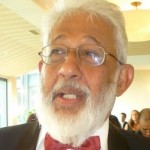
By Kumar David -April 3, 2014
President Mahinda Rajapakse’s United People’s Freedom Alliance (UPFA) won both the Western Provincial Council (WPC) and the Southern Provincial Council (SPC) by what would normally seem comfortable margins, securing 53% and 58%, respectively, of the popular vote. At first glance it may look alright, but it’s the trend not the final numbers that matter. In 2009 these numbers were 65% and 68%.
A 10% slippage in the South, the President’s heartland, was unexpected. More serious is that for international (UNHRC) and local (economy and corruption like India) reasons the government is entering a period of difficulty. The UPFA’s share of the vote in Colombo District fell below half (45%), though still larger than any other single party, and it lost all but one of the individual electorates within the City. If there is one more setback of this magnitude within the next 12 to 24 months President and UPFA will have to pack their bags. Colombo does have a special role as a place from which trends and ideas spread to other urban areas. It is not illegitimate to ask if the writing is on the wall for the Rajapakse Regime, but it is premature to assert that the answer is known with certainty since trends can reverse.
This piece is not for researchers who themselves plan to go to the raw data or for those who want a broad-brush political assessment and not lots of numbers. It is for Indian analysts, who can benefit from processed data, aggregating major trends, and which makes its political assumptions transparent. These are separable; it is possible to make different political assumptions but still use the data.
There are three crucial criteria; (a) how much did the UPFA vote slip, (b) what was the trade off between the United National Party (UNP), traditional liberal-capitalist party, and the Democratic Party (DP), party of the ‘war-hero’ General Sarath Fonseka and, (c) how did the left-wing People’s Liberation Front (JVP) fare?
The government hoped to whip up post-Geneva xenophobic frenzy and win the PC elections by a landslide in preparation for later Presidential and Parliamentary polls. Did it succeed? No; it failed to mobilise its base which remained apathetic to Rajapakse’s fortunes. The regime’s support base seems to have had misgivings about whether the defeat was caused by “evil imperialists” or by government bungling. The opposition has been tirelessly campaigning that Lanka lost the vote for the latter reason.
The percentage of votes obtained by parties that obtained at least one provincial council seat in 2014/2009 is as follows. SLMC is the Sri Lanka Muslim Congress; Mano Ganesan is a popular Colombo based politician of Upcountry Tamil origin, his electoral alliance is called the Democratic Peoples Front (DPF). The symbol # means the party did not exist in 2009.

